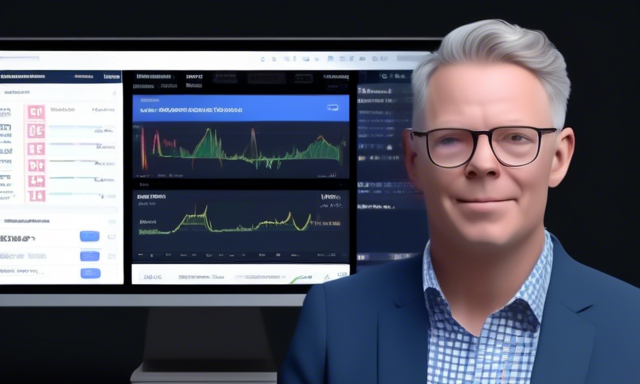Global Stock Market Faces Significant Decline 📉
In an unexpected turn of events, the worldwide stock market experienced a staggering decline, with around $4.1 trillion wiped off its market capitalization in a single week. This drastic fall represents the largest decrease in two years and coincides with a broad sell-off driven by mixed employment data from the U.S. and increasing deflationary concerns in China.
Major Market Withdrawal and Implications 🌍
According to a report from the economic source Kobeissi Letter on the social media platform X, the recent drop of $4.1 trillion in global stock markets was unprecedented. This figure is noted to be twice that of the largest drawdown earlier this year. The U.S. market alone contributed to approximately 54% of this decline, with the S&P 500 index seeing a decrease of 4.3%, while the technology sector, represented by the Nasdaq, plummeted by 5.8%.
Debt Costs Soar Amid Economic Uncertainty 💰
The significant sell-off aligns with the alarming rise in total annual interest expenses on U.S. Federal debt, which has climbed beyond the $1.1 trillion threshold in the second quarter. The government is currently facing a daily interest payment of $3 billion, marking a historic high.
The Federal Reserve initiated a series of interest rate increases in 2022 to counteract inflation, halting these hikes only in late 2023, with rates reaching 5.5%. Although market analysts anticipate rate reductions later this month, the national debt has continued to escalate, surpassing $35.3 trillion.
Rising Interest Rates and Their Impact 📈
Kobeissi Letter emphasizes that the combination of elevated interest rates and the expanding national debt has rendered interest payments one of the largest annual expenditures for the United States in recent years. This financial burden may have profound implications for future fiscal policies.
Market Sell-Off in Tech Stocks ⚠️
Recently, significant losses were reported in the equities market, with over $1 trillion evaporating in a single trading session. Large-cap technology stocks were notably affected, as evidenced by Nvidia’s staggering loss of over $360 billion in market capitalization, driven partly by slowing growth predictions.
Additionally, two key manufacturing activity indicators have indicated ongoing sluggishness in the sector, a situation exacerbated by the prevailing high interest rates. The forthcoming U.S. August jobs report could bring about further market fluctuation, especially since a hotter-than-expected unemployment figure last month led to a decline in stock market values.
The Historic September Effect 📅
Historical data from Investopedia reveals that September is the only month in nearly a century to consistently record negative returns in the stock market. This phenomenon, dubbed the ‘September Effect,’ suggests that stocks tend to underperform during this month.
The focus this year will be on how market participants adapt to these challenging conditions, as looming economic factors continue to shape investor sentiment and overall market dynamics. The interplay of rising interest rates, rigorous economic indicators, and historically unfavorable market trends in September could define the immediate future of the stock market landscape.
Hot Take 🔥
The recent downturn in the stock market serves as a stark reminder of the fragility of financial systems amidst rising interest rates and expansive national debt. As you track these developments, it’s crucial to maintain an informed perspective on how global economic trends might influence your personal financial strategies and outlooks moving forward.
Remember to replace the links at the end with valid clickable HTML hyperlinks only if they were present in the original article.





 By
By

 By
By

 By
By